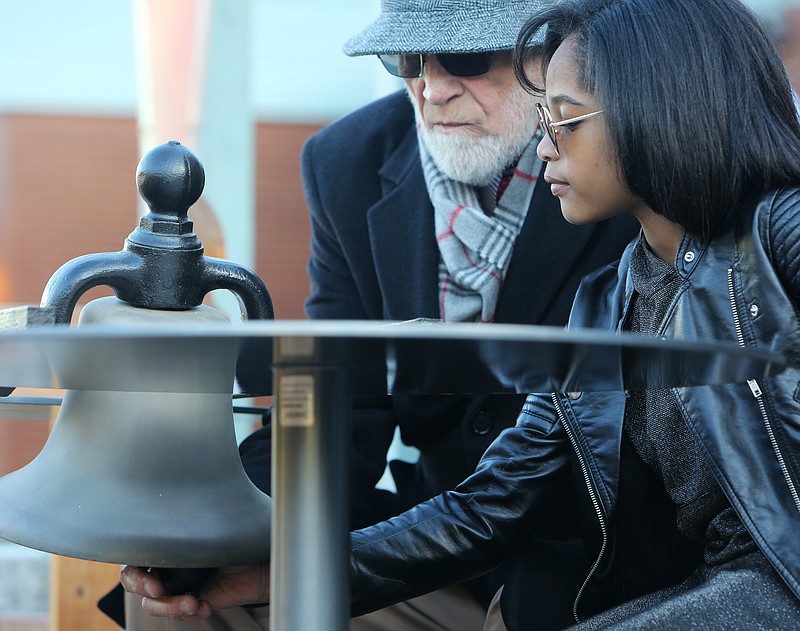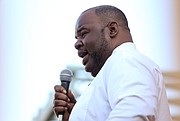I remember where I was, I remember how I felt. I felt really, really bad. It was like all hope was gone.
A crowd gathered in front of the Bessie Smith Cultural Center on Wednesday evening to remember Martin Luther King Jr.'s legacy on the 50th anniversary of his assassination.
"Dr. King had a dream," said Eric Atkins, of the Unity Group, which organized the event. "That was me and you, black and white, and red and yellow, live together ... free of discrimination, free of classicism."
Quenston Coleman, former chairman of the MLK Week celebration, also spoke at the ceremony.
"As we stand today, thinking that we are desegregated, thinking that everything is OK, thinking that the dream has been realized, you need to know that Martin Luther King did the same reflecting and said, 'I woke up from the dream, and it was a nightmare,'" Coleman said.
He challenged the crowd to "wake up from the dream" and go to work "on the reality that is not just about desegregation but economic inclusion."
After the speeches, young people were called to the podium to help ring a bell 39 times, once for each year King was alive.
The bell used to be housed at Lookout Valley Elementary, which was the first school in Chattanooga to adopt a plan for desegregation.
"I wanted to respect Dr. Martin Luther King Jr. for what he did for [civil] rights," said Teryn Rodriguez, one of the children who rang the bell.
"It means a lot for future unity," said Chenelle Caudle, another young person who rang the bell. "[It was an] encouragement and reminder that we need help. It can't just be us."
After the bell toll, the crowd observed a moment of silence in remembrance of King and then held hands and sang "We Shall Overcome."
"We are all one people, we are all one family," Atkins said. "... We must live together and we must pray together."
Earlier on Wednesday, Hamilton County Commissioner Warren Mackey spoke from the dais at that morning's commission meeting about King's legacy.
"He's an important figure, as a civil rights leader and as leader of a movement that was intended to change the direction of America. America was a very segregated place," Mackey said.
Though America is a great nation, its promise of equity and fairness didn't and doesn't hold true for some of its citizens - particularly people of color and the poor, he said, noting that King delivered his "I Have a Dream" speech at the 1963 Poor People's March on Washington, D.C.
Mackey said that "just because a person has white skin doesn't make them racist; most people are people of love," and noted how he and fellow commissioners are "trying to move the county forward," but added there's more to do.
Commissioner Joe Graham offered thoughts and prayers for the King family, and said if the leader had lived, his likely accomplishments would have been "mind-boggling."
Commissioner Greg Beck said he was 21 when King was slain.
"I remember where I was, I remember how I felt. I felt really, really bad. ... It was like all hope was gone," he said.
"I had experienced many, many things, many occasions where I had to keep my mouth closed or stay out of the way of what was happening. The attitude of Americans toward Africans had been accepted by many Africans, but here were many who said, America is greater than this.
"Good Americans responded to that," Beck said. "Because of good Americans, Greg Beck is sitting here today" able to live and work where he wants.
"But Greg Beck wants to feel a little better. There's still young boys being shot down in the street, still inequities in this great nation. But the fact that America is so great it actually elected an African as president, that was the moment America reached the pinnacle of its greatness," he said.
Contact staff writer Rosana Hughes at rhughes@timesfreepress.com or 423-757-6327 with tips or story ideas. Follow her on Twitter @Hughes Rosana.
Contact staff writer Judy Walton at jwalton@timesfreepress.com or 423-757-6416.

